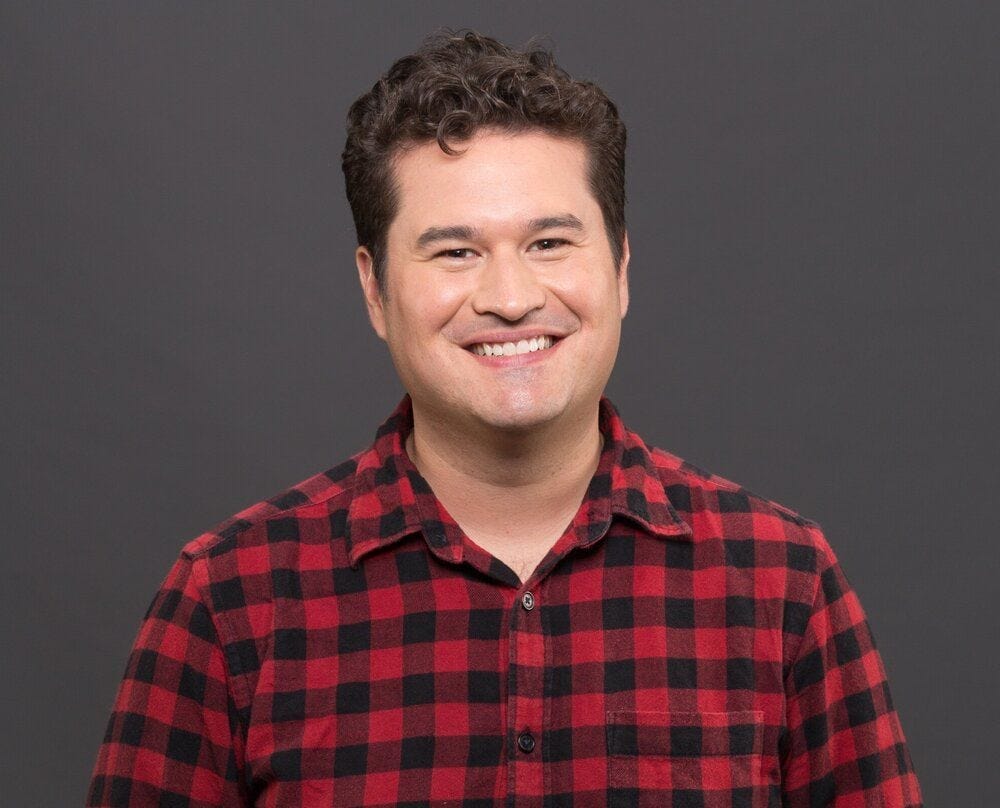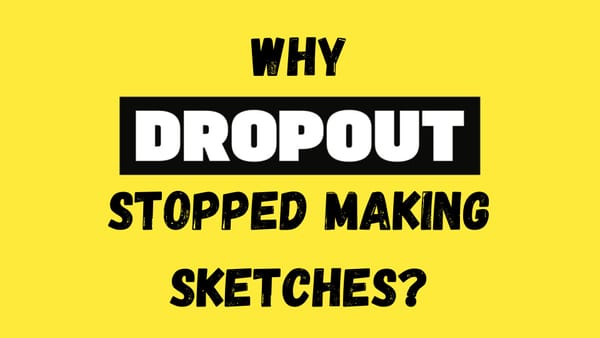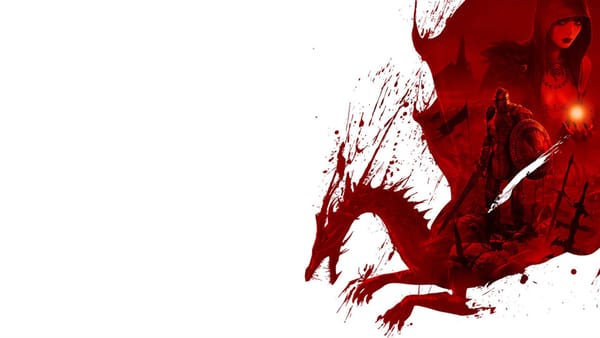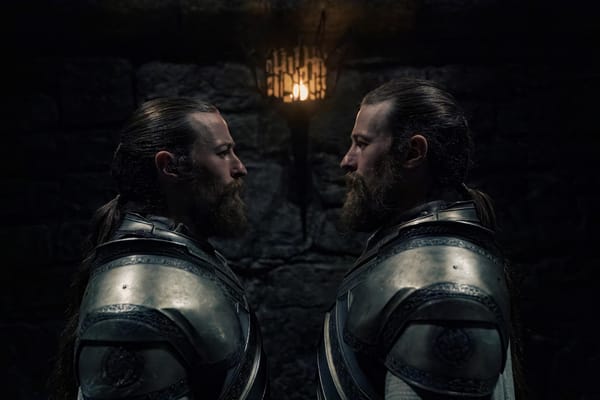An Interview With Mike Trapp About The Making (and Fate) of Dropout's Um, Actually
Mike Trapp, the creator of Um Actually, talks about the latest season released on Dropout. Will it be the last one?

Author's Note: This piece was originally published on February 2020. It's been edited and republished.
I remember a few years back when I saw the first iteration of Um, Actually on YouTube. Mike Trapp was sitting next to a table, and three contestants were sitting on a small couch near that table. It was so much shorter. The entire thing ended in less than five minutes — but it was pure gold.
Fast forward to 2020.
Trapp has shot 53 full episodes of Um, Actually for Dropout in the first two seasons. Yes, I went to count them on the site! Now, the third season of the show is being released on Dropout, one episode every week.
Amidst the CollegeHumor layoffs announced last month, I reached out to Trapp and asked some questions about the new season, some behind-the-scenes questions, and some excellent tips! Trapp is a wonderful person, and I enjoy our talks from time to time.
Without further a due, let’s dive in!
Hey, Trapp! Thank you so much for your time! How are you doing since CollegeHumor’s dramatic layoff?
Doing all right. Getting lots of writing done and looking for my next move.
It seems like this new season of Um, Actually could be the last. Do you have any plans to keep it alive somehow?
While I’m no longer at the company full-time, I don’t think you’ve seen the last of “Um, Actually.” I’m in active conversations with Sam Reich about what the future of the show might look like, and we’re still hoping to launch a play-at-home game at the end of this year.
There’s a lot to figure out, but clearly, there’s still an active and engaged fan base that we don’t want to ignore.
That’s good to hear! So, tell me, what work happens behind the scenes to make an Um, Actually episode?
A lot! The questions’ research and writing takes a lot of time and gets more and more difficult as you use up all the low-hanging fruit. We would shoot thirteen questions per episode, four episodes per day, and three shoot days per week, so for a week of shooting, we would need to have at minimum 156 questions ready to go, and ideally more, so we’re able to cut weaker options.
I only had one researcher/writer/fact-checker working the show (the incredible Michael Saltzman), so you can imagine how tricky it must be for just the two of us to make sure we have enough interesting questions covering a wide range of topics.
Aside from writing, there’s also the time spent designing shiny questions, casting the episodes, and building new background props for themed episodes — all work that our producers handled.
Do you choose the questions based on the contestants, or are they selected randomly?
We write a big batch of questions before we cast the episodes, but once we know who’s in a given episode, we’ll choose specific ones from the bank, or write new ones that fit our players’ interests.
In a given episode, 3–6 questions will be aimed at a specific participant, and the rest are total grab bags. At first brush, this may seem unfair, but in practice, it’s just as likely someone else gets the point for a contestant-specific question, or that no one gets it.
The show is also just more fun when people are answering correctly, or at least talking about topics that they’re familiar with.
Now, I gotta ask this one, did you have a selection of ties? I did notice each episode featured a different one.
Early on, I decided that my outfit should stay pretty consistent between episodes. This is because I am lazy and annoyed by wardrobe changes, so one standard formal-ish outfit became my Um Actually “costume.”
I don’t actually own those ties, because, well, I hate formal wear — they were ordered specifically for the show by our producers.
I noticed that in some seasons, you selected questions that the answer included some strange fact you wanted to share. How did this tradition start? Did you actively search for weird facts, or you just came across them in the research phase?
This is actually our primary strategy when writing questions, and has been since the first episode. It’s not enough to say a wrong statement; ideally, the answer teaches you something interesting, funny, or surprising.
When we would write and select questions, we always strove for ones that would share an interesting fact, elicit conversation, or incite an emotional response.
I want to touch briefly about Charisma and self-esteem. Even before Um Actually, you always had that actor-on-stage air about you. It is one of the reasons I love your sketches so much (aside from being hellishly relatable to me). Regardless, how did Um, actually change or benefit your presentation and performance skills over the years?
Hosting is a weird skill. It’s spinning lots of plates. You have to focus on your own performance, but also the comfort of your guests and ways to support their jokes.
You also have to be aware of the overall run-of-show and the way your power as a host can affect the flow of conversation. It’s a lot to keep track of.
I feel like I’ve improved over the years by worrying less about myself and focusing more on my guests. If I do everything I can to make my guests feel comfortable, and fun, and funny, almost everything else naturally clicks into place.
If someone out there wanted to make their own fan version of Um, Actually, what do you think they should keep in mind?
Aim for variety in every way. Variety of difficulty and variety of topics. The softballs are fun because everyone likes getting points, and the hard questions are thrilling to answer correctly.
How did your writing skill factor in the questions’ editing? Would you mind sharing how to craft the perfect Um, Actually statement?
Here I once again have to shout out Michael Saltzman, who did the bulk of the writing work for the recent seasons. Saltzman did a great job researching and writing a ton of questions.
For me, the perfect question has one of the elements above (an interesting, emotional, or humorous core of trivia). It should also have one or two red herrings to keep people from easily guessing their way into an answer.
And, ideally, you should keep the question fairly short, so people can keep track of it even if they’re not looking at the text.
Well, we talked about preparations and question-writing. How’s the dynamic working when shooting the episodes? All we see is about 30–40 minutes of fun. Did you take breaks? How did the contestants deal with the competition?
We would usually shoot about an hour’s worth of material per episode. A lot of what is cut is dead air: people thinking, working on shiny questions, or asking me to repeat the question, but there are always some fun bits of conversation that get cut for time, or because they’re so wildly tangential that they feel out of place.
The plan was to share some of these cut-for-time convos on social media this year, but I’m not sure if those will actually be released. There are breaks, but a lot of that time for me is spent looking over questions for the next episode.
They’re long, high-energy days, but the goal is ultimately to have fun — if the contestants are enjoying themselves, it’s almost guaranteed to be a great episode.
If given the chance, do you see yourself making another game show, or perhaps another season of Um, Actually?
Maybe! I’m not ruling anything out! Right now, I’m focusing a little more on narrative projects. With some luck, maybe I can make something that can be featured on a show like “Um, Actually.”
That’s probably the best answer you could have given me. Wow. Say, how has your relationship been with the fans of Um Actually?
The fans are great! I know that might sound surprising for a show inspired by a particular brand of toxic nerddom, but everyone I’ve spoken with gets what we’re doing and is in on the joke.
I’ve tried to create an environment where people can talk extensively about the things they like while being inclusive and avoiding gatekeeping. I think most of the fans have picked up on that tone.
Wait, you’re not getting off the hook that easily. There must have been some destructive criticism from angry mobs of geeks when you said something wrong. How did you deal with that?
Not as much as you might think. I’m pretty upfront in acknowledging that I’m going to make mistakes constantly on the show, and I think making it a part of the game turned a would-be angry mob into fellow contestants.
Well, you always had that challenging gleam in your eye for the fans at home. Do you mind sharing a tip on developing the thick skin a performer needs to deal with criticism?
For Um, Actually, it’s all part of the game. I’m lifting my shirt and saying, “hey, punch me in the stomach,” so I’m not going to be upset when someone swings their fist.
For everything else, find people you know whose judgment you trust. Take their criticism; they’re making you better, and you know they come from a place of experience and care.
Ignore strangers — you have no way to be sure if they know what they’re talking about or if they’re acting in good faith.
Trapp, thanks so much for these answers! I appreciate your time, and I’m so curious to know — where are you headed next?
Thanks for being such a great fan! I have no idea where I’m headed from here. With luck, I’ll find a way to keep making things that people watch and enjoy.



